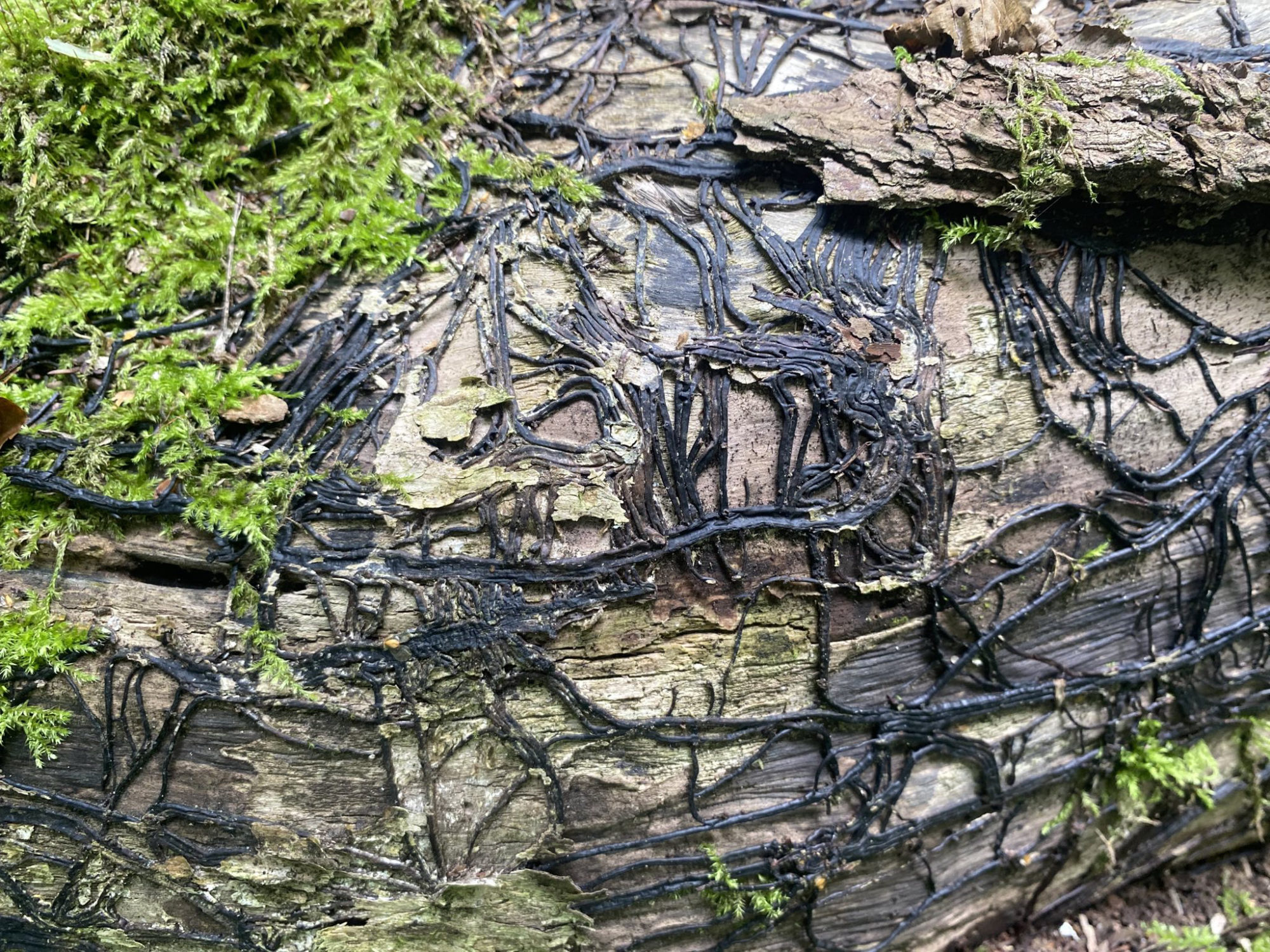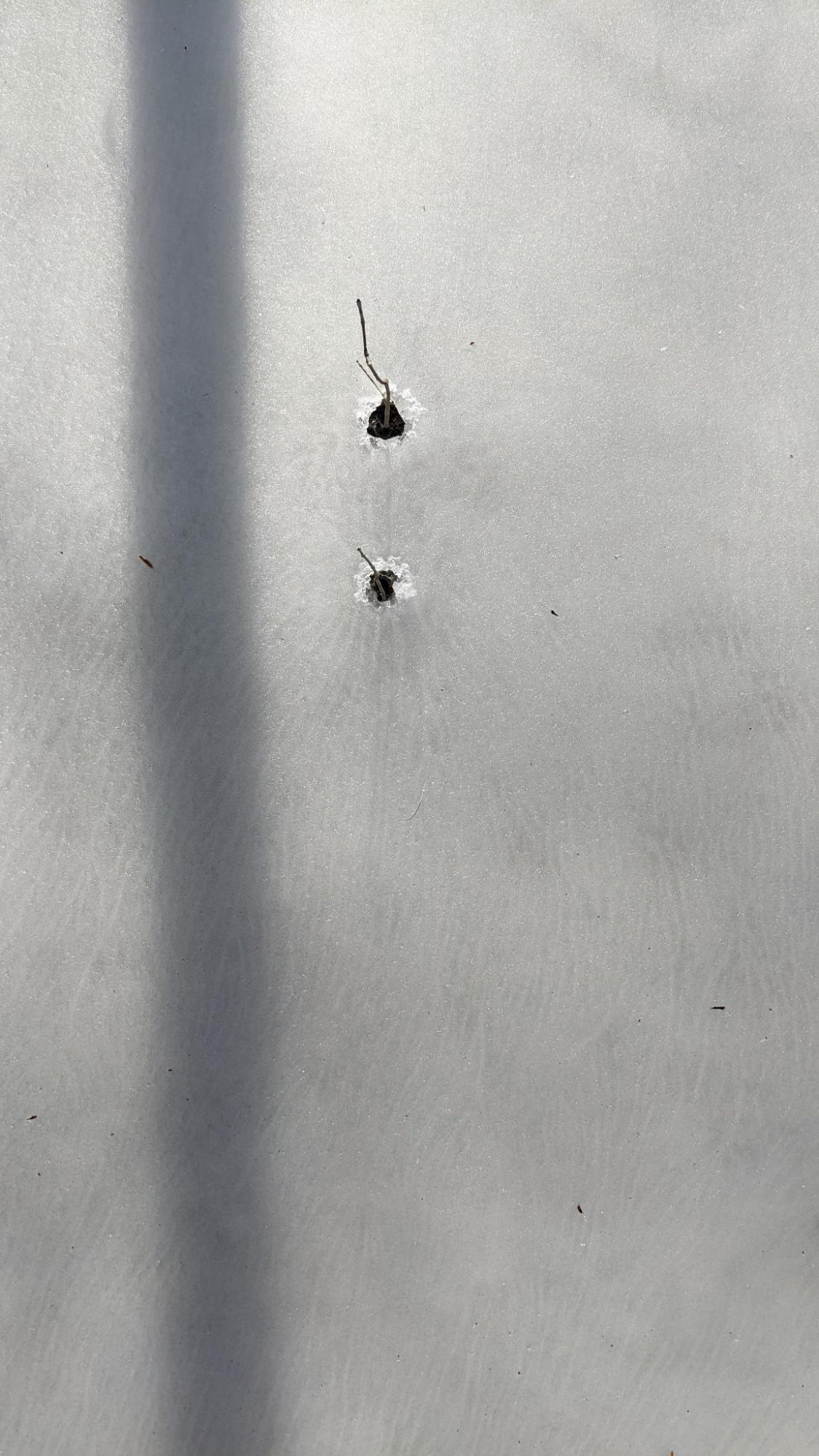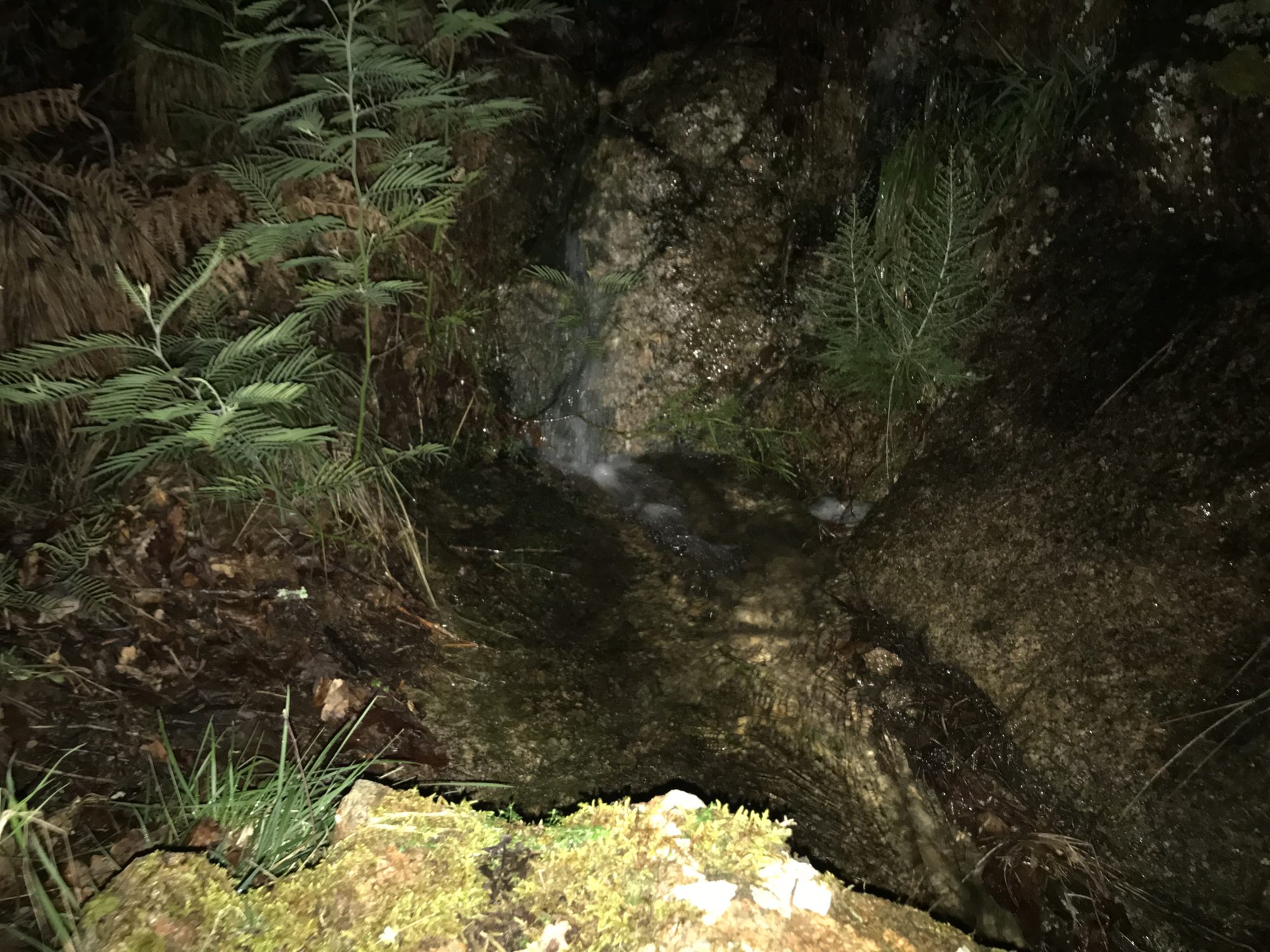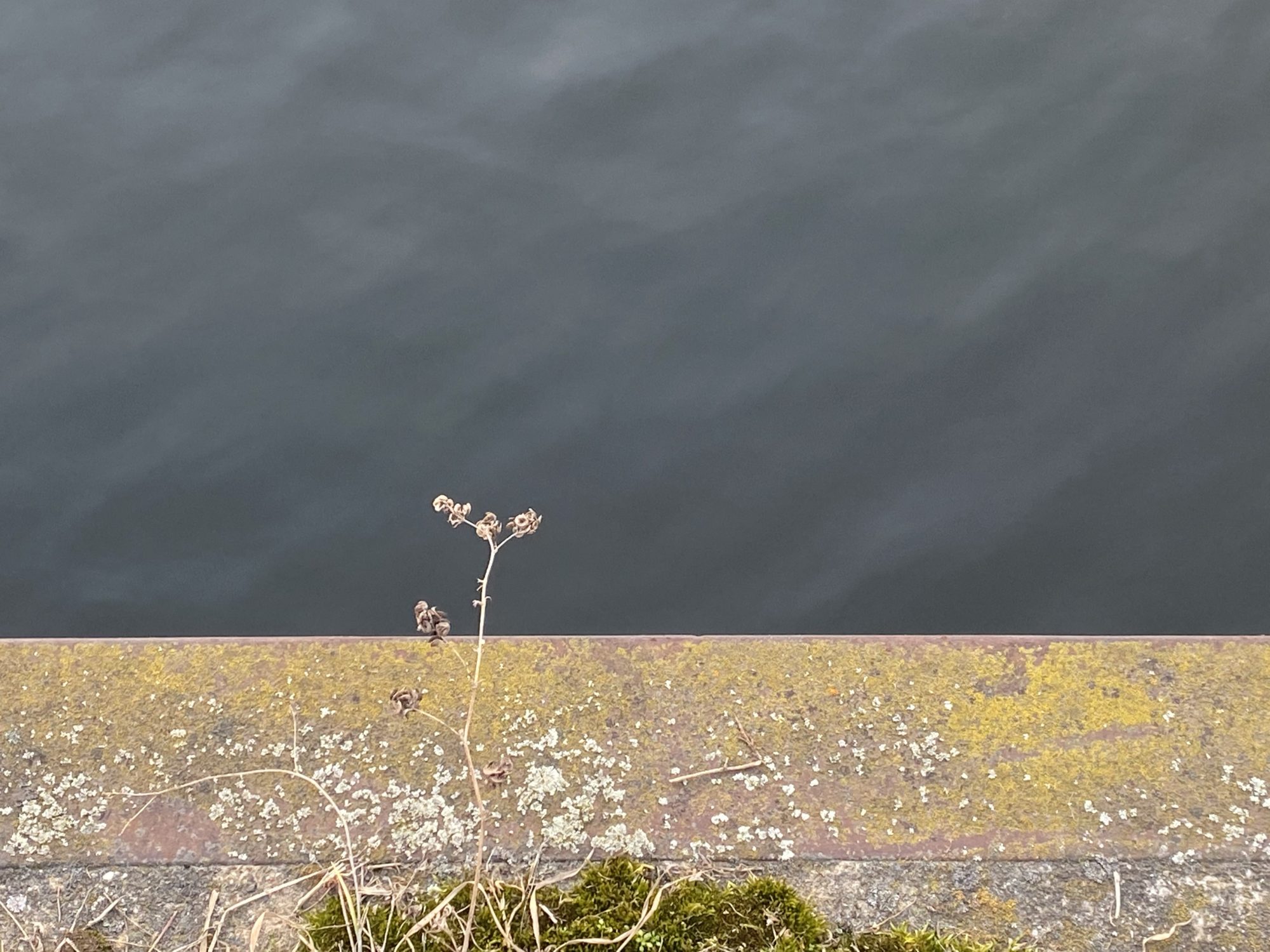Listening With – On Entangled Listening
We must – to use the language of Bruno Latour – depart from the realm of ideas, return to earth and become ‘Terrestrial;’ an act that requires ‘attaching oneself to the soil on the one hand, [and] becoming attached to the world on the other.’
Sound propagates and entangles; listening requires presence and empathy; surely these are qualities that lend themselves well to reframing human relations with the world around us? We ask: how can sound and listening recast the realm of ideas as vibrant practices that offer strategies for survival? How might practices of sounding and listening offer possibilities for making kin and celebrating human-nonhuman entanglement?
Through the framework of a ‘Deep Listening Study Circle’ we develop ‘sound strategies for survival.’ ‘Sound strategies’ are not ends in themselves, but openings: tactics that seize on the affordances of the vibratory domain to enact and pursue imperatives from our manifesto. They engage with what sound and listening make possible: what is heard, unheard, and imagined through diverse ecologies and assemblages; and the possibilities for sounding that lie within and across these.
The conversation that follows discusses explorations of listening as a practice of entanglement with nonhuman others. This is an approach to sonic attention-giving that attempts to render the individual not as a singular listener, but rather as part of an ecology, an open-ended assemblage of human and nonhuman actors: it applies gentle awareness toward those ‘others’ that may be there, and the ways in which they might, too, listen. The conversation took place during lockdown in early 2021. It directly follows a week of independent ‘entangled’ listening practice, and the texts that interject it are journal extracts by members of the group that record their experiences of listening.
Walker Tufts
Can we really remember and listen at once?
Alex De Little
I’m interested to know what memory has to do with entanglement, or whether that’s even important?
Martyna Poznańska
Yeah, I mean, do we need memory to feel entangled? Or can we be entangled without memory?
Cláudia Martinho
And what about this idea of some kind of common memory, primordial memory?
Primordial sounds that trigger within us a sense of entanglement with the world. Remembering and listening come naturally bound up with one-another. I was wondering if there are sounds that could be universal. That this idea of memory is not so much related to our culture, but to something that is common to every being on earth and there are these primordial sounds, vibrations that promote entanglement or create this feeling of interconnectedness.
Alex De Little
Cláudia, can you say more about what you mean by primordial sounds?
Cláudia Martinho
Such as water, wind. Well, actually, any natural sound I suppose? I’m not sure.
Alex De Little
I wonder if this has something to do with the identifiability of sound, you know, this idea that to know what a sound source is is to instantly hear something – to identify – rather than to listen with, alongside, be present with… and this idea of like wind, water, white noise, maybe these types of sounds kind of necessitate a different mode of attention.
Martyna Poznańska
I believe that everyone has their personal sense of sonic entanglement, sort of like how everyone uses a slightly different language when they speak. And everyone carries in their body a different collection of sounds that they incorporate throughout their lives. In contrast to this idea of primordial sounds, I believe that everyone holds their own ‘score.’ From the moment they’re in the womb, through their childhood and further on.
Jacob Eriksen
I think I would subscribe to that thought. And maybe we can then ask the question, ‘can we remember and listen at the same time’ in the opposite direction: is it possible not to remember and listen at the same time? And what would that then be like? The French composer Pierre Schaefer would maybe call it reduced listening, like listening to the sound quality in itself. But even he thought that that category of reduced listening could not be totally isolated from our memories, or from our search for the source, or meaning or like, the connection to our experience, and memory, and so on.
[…] And I also think it’s highly individual, how we then perceive the sound-in-itself…
***
The neighbor’s car stereo, windows up against the cold. The collapsing snow surface, the overwhelming sound of water. The sound of melting. The sun, does my shadow make a sound, or an absence of sound as the melting slows in it? The roof’s sheet of snow creates an endless and erratic tempo, the entire length of aluminium gutter on the west facing side of the afternoon house, a drum. Every 2 cm a procession of drops, that phase in and out of rhythm.
Distant dogs, a struggling motor, scraping shovels, sounds come in with a clear and palpable energy and break around my forehead as they roll over the pale blanket of solid water. Snow and ice hold ancient memories, centuries old breath and flesh. Can the water remember and listen at the same time? Or is remembering an impediment to listening? Can we really remember and listen at once? Melting is to release memory & move, to find space, to seep into the earth, to relax into an embrace.
***
Nik Forrest
This is really interesting what you are all saying. I’ve been thinking about how you can have these layers of listening […]. In the same way as in meditation, things come up easily if you allow them to and then let them go. And we can think about memory as one layer that could be present.
You could have layers that shift position. So maybe sometimes you’re really remembering something in relation to the sound, but maybe at other times, it’s more timbral like Jacob was saying about (Schaefer’s) reduced listening.
And yeah, I guess, there was something really great in these lines of Walker: I was caught by those two: Snow and ice hold ancient memories, centuries old breath and flesh. Can the water remember and listen at the same time? I was thinking, “why is it even weird at all to think of, you know, non-human things listening?” And I guess as soon as we kind of let go of ears as the only way of listening then, yeah, everything’s listening and remembering probably, as well as acting and talking.
***
Tingling sonic traces of the falling snowflakes are gradually softly covering my eyelids, cheeks and lips while instantly melting and fading out into a hollow possibility of silence. Quietude of the meadows, spirits of the trees and the city’s hum, rush, intrepid pace is asleep at last.
At night, I’m woken up by a voice of a person shouting outside of my house. The sounds I gather at my pillow arrive broken, fragmented, uncanny. Either because of the outside–inside trajectory they have to travel, the vertical distance, or my own modifications. I am alarmed at first but then I understand it is a private message to the world that has to be spoken out loudly when only a few insomniacs listen.
The voice permeates into my memory and reappears the next morning, this time embodied when I pass the person who owns it.
I listen to the ongoing entanglements of the sounding water. Tranquil rhythm of it, which dances the entire volume embracing its inhabitants, caresses the surface and resounds in the masts of the boats anchored by the shore. I imagine the movements of that water intertwined with the wind intertwined with the sandy shore intertwined with my dog paws, intertwined with the roots of my hair.
***
Jacob Eriksen
But I must say, I have a hard time ascribing memory to things. I’m sure that most things will be able to perceive or be affected by a vibration or sound in some way. And this effort can be very minimal, it could be that miniscule or imperceptible vibrations are registered.
It can also have meaning for an animal that another animal was calling it, but the notion that everything could have memory, I’m open to it, but I have a hard time understanding it. So right now, I’m not too convinced about memory for everyone or everything. I think this idea risks the possibility of anthropomorphizing objects and non-human beings. Of course, it’s easiest to understand what is not us by mirroring ourselves. But I’m not sure it’s the right way to go. But maybe it’s the first step.
And I would like to dive deeper into that idea of what kinds of memory could exist aside from human memory? Or indeed if there is a memory at all – I like the idea – but I’m also very skeptical.
Walker Tufts
Yeah, I feel like that’s where I kind of started with this. I was thinking about how water literally has memory, like how we can take an ice core and we can look at the air from millions of years ago trapped in the ice.
So, that all kind of started with the snow as a mirror because I was trying to listen to the snow, but all I could hear was the sounds it was reflecting. And so then thinking about the snow as this impenetrable bank of memory, this thing that can’t be accessed ‘in live’ – it only can be accessed by melting it or, you know, jumping a state into steam.
And so that was where I started with that. And all of it starting with this question of, how can imagining be listening? So I feel like we’re trying to build these new structures in our brain that can actually afford agency that we are trained not to give away. We’re trained to hoard agency to the human subject.
And if we can’t start with these processes of assuming a kind of variation on memory or intelligence, that’s something other than human… what you’re saying is right, OK, we have to kind of go, we have to melt before we can, like, get into the next place.
But I was tied up in that same question. Like we’re, we’re projecting ourselves out into these beings, how is that listening to them? Isn’t that just pretending to listen? But maybe we have to pretend to listen first?
***
Snowing all day. Wet fluffy snow that sounds like a tiny thud when it hits my umbrella.
Later lighter, powdery, almost silent. Returning in the evening to stand outside: very quiet – muffled, still; the street feels smaller because of the sound. Beside the canal (that is mostly frozen), near the lock – the sound of water rushing mixes with traffic on the other side; the two sound becoming indistinguishable at times, listening to each other, mixing like a conversation or song, each rising and falling in volume, overlapping (do they hear each other?); each one more prominent on one side of the canal, so – moving just a step or two toward either side changes the mix radically. Cross-country skiers pass, rhythmic swishing also mixes with traffic and water sounds. So relaxing and stimulating to be outside in the new snow world: everything sounds different, renewed. Listening, breathing, moving in/with the sounds; composing with /in listening and moving.
Falling asleep listening to a conversation among cats outside. My cats are interested, going to the window to listen more closely. They stare out the window, ears moving to follow the sound. Dream about animals…cats? Not exactly – but their voices sound in my dreamspace.
Writing for too many hours: the words are alive and moving around on their own; material sounds that exist somewhere, accessed only partially by reading.
***
Martyna Poznańska
Then maybe it’s a question of wording. And we call memory something that we assigned to humans, whereas memory could also be a tactile imprint or a sign. Memory is enclosed in too narrow a term.
Jacob Eriksen
Well, I don’t think that memory is a human thing. I assume that dogs can remember and plants can also remember, they have their own kind of memory. But that doesn’t mean that everything has a memory.
I think also that if we talk about non-biological memory, like outside of plants and viruses and animals and so on, maybe memory is really the wrong word to use, and maybe we should think about it as storage of information or whatever. Because there’s something about memory that is about the possibility to recall. I’m not totally sure but I think you have a memory in order to react to it in time and space.
So maybe things shouldn’t be ascribed a memory if they lack the ability to act upon it.
***
The rain stopped. I step outside, down to the garden. The water falling down the hill behind the house is calling. One bird is out too, calling. I sit on a stone covered with green fluffy wet moss, listening to the water falling and singing, washing up my senses. Stones reflect the water’s sound waves. Plants are vivid and vibrant. No cars, no humans. I can hear other waterfalls in the high mountain just in front. And the river roaring far, distant, echoing between cliffs, and traveling through the moist air. In this place, water is the vehicle that connects everything. I go and drink from this crystal water. It reminds me of how the ancient used to listen to the water for oracles, for healing. I started singing with, communicating with, thank you water.
***
Alex De Little
I’ve been struggling with what Walker said about the snow – that it is just being and not doing anything. Because in this state you can’t listen to it. It can’t tell you its secrets and its memories and its sense of being, right?
So then there’s this problem of, well, how can you be with it sonically or at all if it’s not doing anything? But the idea of doing something to it in order to gain some kind of feedback seems to be to turn back to anthropocentricity in order to understand; you are doing to it and maybe only understanding yourself in the process. The snow becomes a mirror again.
I’ve been thinking a little bit about what it means to be entangled through sound. What is it to notice and arrive at an entanglement in the world. How do we reframe our sense of presence or being in terms of decentering the ‘us-ness’ of it?
And I used to be really obsessed with this phenomenological idea of listening where you’re kind of at the center: as you reach out in listening, you meet the sounds around you and produce your sonic sense of the world. In this model, the human listener is always at the center.
But this is problematic for what we’re trying to do. So, I’m thinking about how to come up with something else. And I like some of these new-materialist theories which talk about the assemblage or the ecology, which is this kind of network of mutually informing, contingent, inter-relying forces: human non-human, material, etc. So then it’s a question of how to listen with a sense of that. How to listen not at the center, but with, as part of, in relation to.
Another thing is the ethical considerations around entangled listening, and I’m thinking of the work of AM Kanngeiser here. One idea that they focus on, for example, is the ethics of listening to sounds that lie outside the audible human range by transposing them. Should we be allowed to do this? By doing this might we be imposing ourselves on parts of an ecology where we are not needed?
The idea of anthropocentricity to me incorporates the idea of needing to know what is there: being entitled to hear everything, to listen to everything. And here I arrive back at the snow. And the idea of well, if there’s nothing to hear, then maybe there’s nothing for you to be concerned with. And within that lies a sense that listening might also be a kind of acceptance that we can’t hear what’s there.
***
Listening to my neighborhood in the middle of the day. There’s a fragile tension between my consciousness that knows that there is a constant event taking place outside right now – snowflakes are falling from the sky and the absence of sound that these snowflakes create when they hit the ground, the trees or my attic window. Perhaps an “absence of sound” isn’t the right description, since these moments must have a sound, it is just inaudible for me, as a human, or from the location that I’m currently at – sitting on my chair, in my attic, inside my house. The silence in my room makes me aware of a high frequency that is constantly heard – I’m not sure if I hear it from inside my head or from the outside. Is it the sound of electricity? I hear distant trains and cars, my neighbor’s children are yelling at each other from the other side of my wall, and my computer’s fan is overworking. Tiny squeaks caused by tiny movements of my chair, coming from the spot where it meets the carpet.
***
Martyna Poznańska
But also the practice of making imperceptible events perceptible might simply make them accessible, and in a way, maybe it’s not a question of being entitled, but making something accessible might help to increase the awareness of the existence of the ungraspable or somehow bring attention to it. Which in environmental thinking might be still quite anthropocentric, but possibly helpful.
Alex De Little
I agree and I think the bigger question is how can we be productive? Is it enough to make a start? And I think in these kinds of quite leftist philosophies, you get a lot of vetoing or a lot of kind of, well, if it’s not an outright rejection of anthropocentrism, it’s not valid, right? But then sometimes there’s a question of how can you be productive if you don’t try things? And I think, Marta, what you’re saying is, it’s true and maybe there’s something about foregrounding process rather than necessarily being able to arrive at the perfect answer. We kind of had to develop strategies that are beginnings, right. So yeah, I like that as an offering.
Jacob Eriksen
I think this is like the difference between Deleuze and Guattari’s concept of becoming and Harraway’s concept of becoming with: if you can become an animal, if you can become the other. If you can become a stone, like literally turn into a stone, then of course you can listen like a stone. But that’s not possible. So the use of the ‘with’ brings an element of humbleness and pursues what is practicable. This becoming with the stone or the snow,, that’s the acceptance of “we are human.” And I really want to go into this ‘with’ as the door to an approach to listening.
Walker Tufts
The ‘with’ feels very important because I think that there’s a fine line between accessibility and legibility. And capitalism and the state are always in the pursuit of legibility and this potential to convert knowledge, especially into a sort of binary or code, something that can be commodified and traded.
And so if the ‘with’ can be the most important thing, then it potentially breaks down the capacity for that thing to then just get co-opted and folded up into the capitalist system. So that sound or, you know, data extracted from sound or snow or something just becomes a resource.
Nik Forrest
This is all really interesting to me. And I guess I’ve been thinking about how to balance – like Alex says – trying things and making a start; and trying to find ways to hear more without just being extractive and wanting to hear everything?
I guess it is something about ‘with’ like Jacob is saying, but also accepting what you can’t hear. But then also listening to what you’re not hearing, to what is absent.
***
The house I am living in is in the middle of a large construction site. Many buildings have been built in the past eight years and the work will be complete in a few years. Every day at around six thirty the workers start working with heavy machinery: trucks, cranes, wheel loaders, and so on. During the ongoing sounds and noises from the construction site, which are very present throughout the day, some more or less subtle drones are penetrating the area—including the house I am living in. These drones are ranging in the low frequency spectrum between heard and unheard vibrations. My body perceives the parts of the vibrations that my ear is not capable of perceiving. Sometimes I am aware of this. Sometimes not.
Today it is freezing. Most drones from the construction site have not been sounding.
***
Alex De Little
In some ways, the main problem might be accepting the reality of the conditions. And many of these crises seem to be perpetuated by a kind of lack of awareness of the reality of the conditions. Timothy Morton talks about this idea of nature with a capital ‘N’ and ‘the great severing’ that humans undergo from an original, childlike state of curiosity and embeddedness within the world to this kind of realm of ideas and society and capital. It’s the idea that through our upbringing we become severed from the environment and this ‘entangled’ state.
So maybe our first strategy is this idea of pursuing ‘listening with’ as a kind of, you know, dedicated practice, but also as a starting point; as a basis for realizing the possible actions that one might take or strategies that one might deploy, crucially through a state of responsiveness, or as Haraway says response-ability. Or Andrew Pickering talks about this dance of agency, except that’s a little bit more analytical.
But I’m interested in this idea of responding to the nature of things as they are presented to us in whatever experience that is: whether that’s about noticing the void – the nothingness – or the somethingness.
Yifeat Ziv
This week, I was spending most of my time at home, both because it’s lockdown in London and because of the fact that, like, during the weekend, we had kind of a snow storm and it was really hard to be outside.
I think this whole period of time that we all spend at home is an opportunity for us to get these new listening capabilities or new listening focuses, that will be really interesting to examine when we return to our diverse environments again.
***
I’m mainly registering weather right now – a set of material conditions giving rise to vibrations within my environment. As I listen, I become aware that these conditions are consistent for all of the beings in this environment. The tiny pitter-patter of snowflakes delicately coming to rest on the ground. Voices of walkers in the distance who are listening to one another intently. The bird that calls also listens for a response. The atmospheric whooshing of the wind through the trees registers itself on the diaphragm of my field recording device. The wind is both heard and felt by bodies and materials in this piece of woodland. My ears return to the snowflakes, trying to listen-with these minute material events, their contact with the ground, melting. A society of tiny sounds. Could these sounds be thought of as a kind of listening in themselves? – the result of the snowflakes registering their contact with the ground. Listening with this breeze as it registers the material environment around it, redirecting around tree trunks and bodies.
***
All images are courtesy of the Listening With collective.



